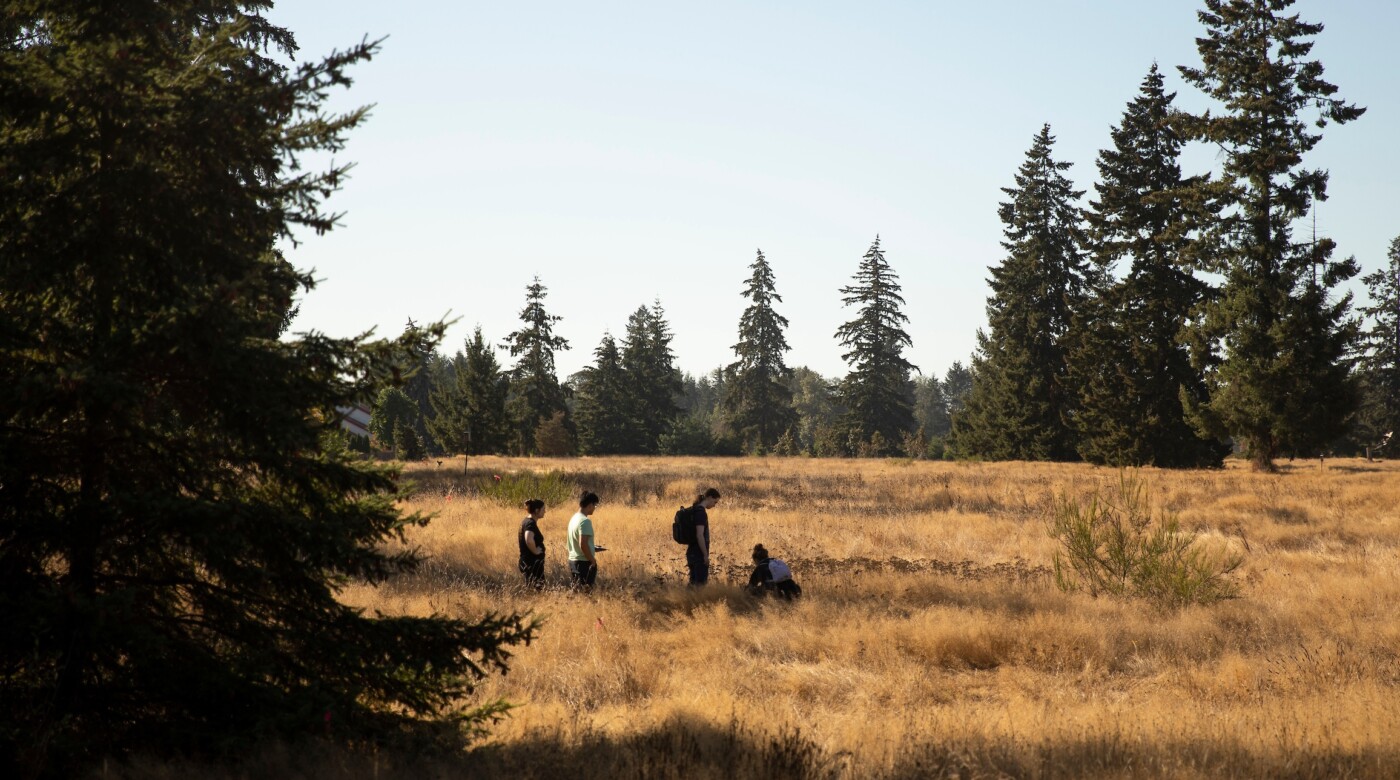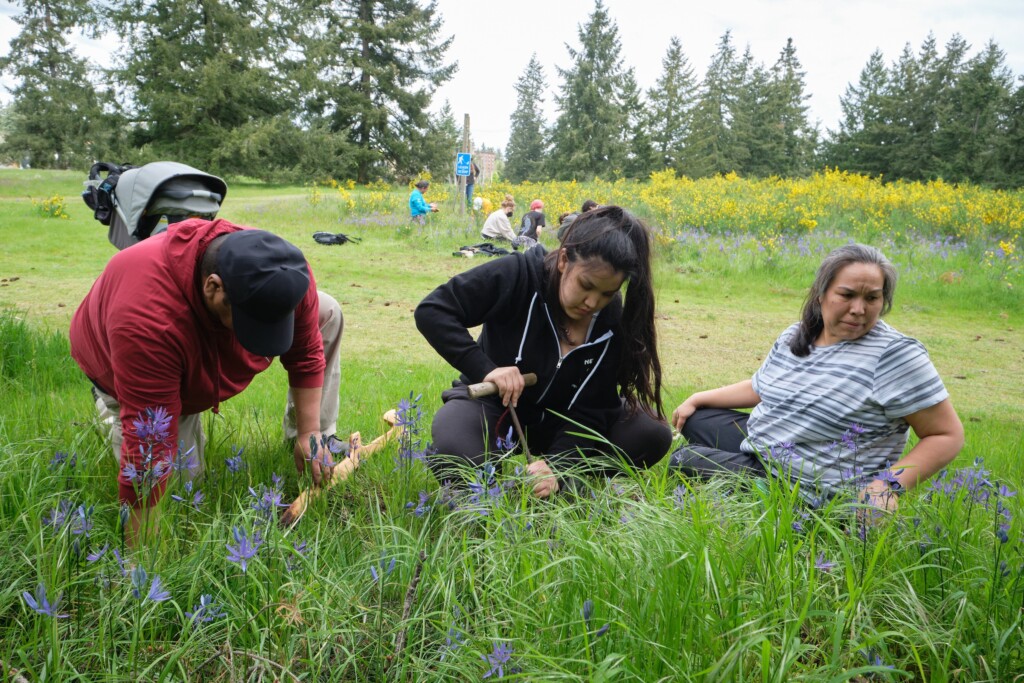$3 million in grant funding will help protect 10 acres of prairie habitat at PLU

Image: Students in PLU’s Conservation Biology and Management course conduct hands-on fieldwork at PLU’s south campus prairie, a living laboratory for conservation and restoration learning.
By Britt Board
Assistant Director of Communications
Pacific Lutheran University was awarded $3 million in grant funding to protect ten acres of prairie land on the southern end of PLU’s campus in Parkland.
PLU is on the traditional lands of the Nisqually, Puyallup, and Squaxin Island peoples; as such, we acknowledge and respect the traditional caretakers of this land. This project builds on that acknowledgment — moving from words toward action by helping preserve and restore a landscape that holds ecological, cultural, and educational significance.
Funding for the project comes from two key conservation programs: the Pierce County Conservation Futures Program and the Washington Wildlife and Recreation Program – Urban Wildlife Habitat, administered by the Washington State Recreation and Conservation Office. The Urban Wildlife Habitat program helps create and preserve green spaces where people can explore nature, and wildlife can thrive. These grants protect essential habitats in and around cities, keeping ecosystems healthy and offering nearby places to connect with the outdoors.
“This award represents what can happen when education, conservation, and community come together,” said Dan Lee, vice president of University Relations. “Protecting this land honors both its ecological importance and its cultural story.” The grant will help permanently preserve one of the few remaining Puget Sound prairies, which is home to a breadth of native plants and animals, including several threatened and endangered species.
Just a few blocks from busy roads and neighborhoods, the site is a rare open space in the middle of urban Pierce County. For PLU, it’s an outdoor classroom and community gathering space, where students can practice stewardship and learn directly from Indigenous partners who have cared for this land for generations.
The prairie is home to the traditional plant called c’abid (camas) in Lushootseed, with edible bulbs that Native communities have consumed for centuries. Every spring, PLU partners with the Puyallup Tribe of Indians to host camas harvests that honor these traditions and teach the next generation about the cultural and ecological importance of the plant. These efforts align with the university’s broader commitments to sustainability, food justice, and community collaboration.



